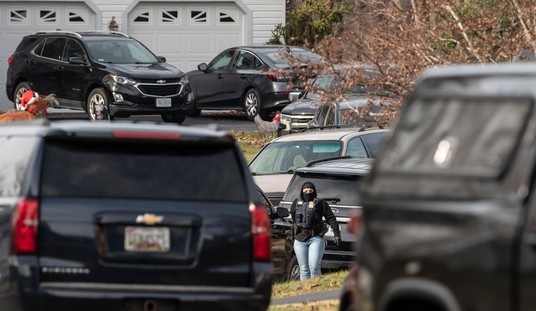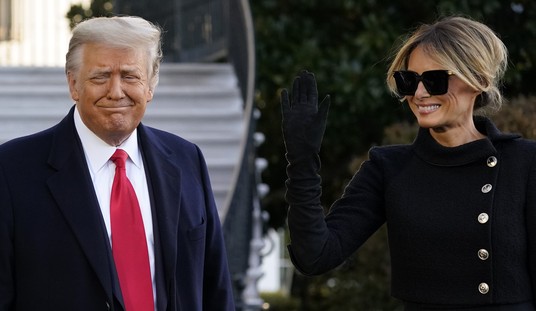Recently, Pew Research traveled to Eastern Europe and surveyed over 25,000 respondents in several former Soviet-bloc countries. Their findings illustrate a troubling trend that will befuddle American policy makers as they deal with Putin.
Solid majorities in all countries surveyed have a belief in God with Roman Catholicism and Christian Orthodoxy the two predominant religions. These were the two main religions as the Austrian-Hungarian and Ottoman Empires were in decline and Communism was rising. Further, the study found that religion and national identity are closely related. This was common across all formerly Communist nations. Being Orthodox was considered to be “truly Russian” to respondents in Russia while being Roman Catholic meant you were “truly Polish” in Poland. They view religion as vitally important to their national identity despite the fact they are not particularly observant. Church attendance in these countries lags behind that in the more secular United States.
Most importantly, especially in the case of Orthodox Christians in the region, they express pro-Russian views. They view Russia and Putin in particular as being an important buffer against the encroachments of the West with our “liberal democracy,” “gay rights,” and “decadence.” In Catholic-majority countries, these sentiments are less although also present and to be expected. Roman Catholics generally look to the Papacy in the West, not eastward to Russia. Hence, in the Orthodox countries, Russia is not only viewed as the last protector of ethnic Russians, but also of Orthodox Christians throughout the world.
They also tend to be more socially conservative, to show more pride in their nationality and to see their culture as superior to others. Even in Greece- a member of the EU- the study found that 70% believed a strong Russia was a necessary counterbalance to the West.
As one of the study’s authors noted, this propensity is multidimensional. On the economic side, being former Communist countries, ideals of “equality” remain high. There is a fear of full-blown capitalism. After all, Russia’s example with “full blown capitalism” created crime, where in Moscow a strip club became a place to have lunch, where women received free drinks before the bar opened its doors to men, where soft core porn dominated television, prostitution was rampant, and there was a menacing Russian mafia extorting businesses. To today’s Russian “puritan,” they prefer the stability of a soft dictatorship. What are a few rights if there is food on the table?
Taking just the example of gay rights, 21% would prefer to see homosexuals “liquidated.” Another 37% advocate separating homosexuals from the rest of society. Only 11% of Russians hold the more Western belief that homosexuality is a sexual orientation from birth. It is these underlying beliefs born of religious orthodoxy that allowed Putin to pass draconian laws in the wake of the Pussy Riot debacle. This law landed Viktor Krasnov in a mental home for a month and sentenced to jail afterwards for stating “God does not exist” on social media. Such a statement in the West would go by with nary a notice. Ruslan Sokolovsky was sentenced to two months in jail for playing Pokemon-Go in a church (the little creatures were in there).
These extreme socially conservative beliefs held sway in 1991 with the collapse of the Soviet Union and persist at the same levels today. The explanation is the inherent social conservatism among Russians and the source of that conservatism is the Orthodox Church. The ingrained prejudices against homosexuals, Jews, blacks, and foreigners are joined to the Russian disdain for nonconformity. In fact, Russian history is littered with the population conforming to the demands of a strongman leader in exchange for surrendering rights we hold dear in the West.
Whenever presented with the threat of invasion or starvation, the Russian people have without exception opted for strong autocratic rule. At the expense of political liberty, they got stability. For about 1,000 years, Russians viewed the Czar as a “protector-king.” Russia under Czarist rule is the only early modern European empire not conquered by Europeans. Even the Swedes made an attempt and failed!
Soviet Russia killed the actual Czars, but the idea of “protector-king” lived on although they now took on different Communist titles. Stalin, despite the atrocities and having more innocent blood on his hands than Hitler, saved Russia from the German hordes after all. But by the late 1980’s no one in Russia believed Europeans were out to get Russia. They did not need a protector anymore and they threw away the notion of of a Czarist legacy and replaced it with an attempt at liberal democracy.
The result was utter failure. A poor and unstable country became poorer and more unstable. And it is in this turmoil that Putin grew to disdain Western style democracy. In effect, he is simply returning to the old ways that seemed to work and which people longed for. He has provided food and protection in exchange for political freedoms. And since his biggest legislative achievement affects perhaps 1% of the population and which a majority of the population feels homosexuals should at least be segregated from society, what is it to them? In fact, Putin is a hero for standing up to the West and its “decadence.”
Although a dictator in most respects, he is merely resurrecting a centuries-old monarchical tradition. He is certainly a menace to the ideals many of us in the West hold near and dear. But, for the moment, he is Russia’s chosen “protector-king,” and given the inherent conservatism, nationalism, and adherence to orthodoxy, Putin is not going anywhere any time soon. He will leave the international stage on his terms when he feels the time is right. And he will have his chosen successor ready to carry on his holy war against “Western decadence.”













Join the conversation as a VIP Member